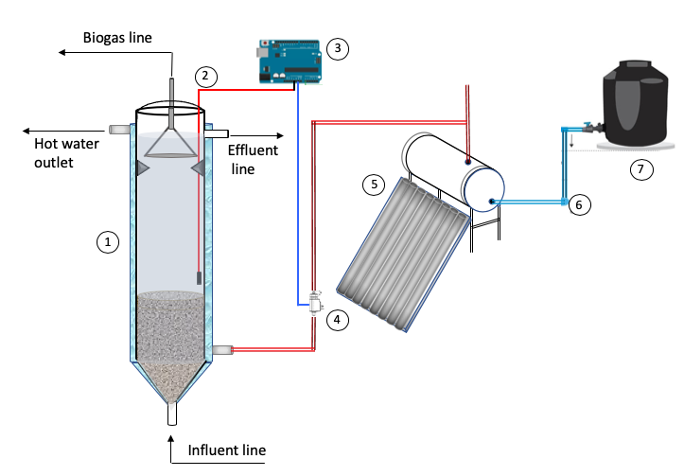 |
|
The clean energies have been the only renewable energies that are capable to replace the use of fossil fuels. The use of clean energies in Wastewater Treatments Plants would decrease the operating costs. In the present work, a solar heater of 8 tubes was used for controlling the temperature of an UASB reactor in order to treat a mixture of industrial wastewater under anaerobic digestion. The reactor was operated at three temperatures (16, 20, and 30 ºC), at organic loading rate of 11 g COD/L-d, HRT of 6 h, and during a period of 100 days. In addition, the effect of a co-substrate on COD consumption was evaluated, in batch cultures. In the steady-state, COD removal efficiencies were 8.6, 20, and 40 %, for 16, 20, and 30 ºC, respectively. Increasing the temperature enhanced the methane production, achieving in average 257 ± 8.6 ml CH4/ g COD removed. In batch cultures, 200 and 400 mg glucose/L used as co-substrate significantly improved the removal and COD consumption rates. Finally, a solar heater might be feasible and economical technology for temperature-control of an UASB reactor in order to improve the organic matter removal.
Keywords: solar-heater, anaerobic-digestion, temperature-control, wastewater.
|
|
 |

